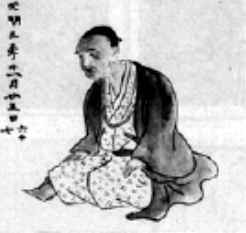Yosa Buson (Yosa Buson)

Poet, Painter. Along with Basho Matsuo and Issa Kobayashi, Yosa Buson is considered among the greatest poets of the Edo Period. He was born in the village of Kema in Settsu Province (now Kema-chô, Miyakojima Ward in the city Osaka). His real last name was “Taniguchi.” Around the age of 20, Buson moved to Edo (now Tokyo) and learned poetry under the tutelage of the haiku master Hajin Hayano Hajin. After Hajin died, Buson moved to Shimo-Usa Province (modern day Ibaraki Prefecture). Following in the footsteps of his idol, Basho Matsuo, Buson traveled through the wilds of northern Honshû that had been the inspiration for Bashô’s famous “Oku no Hosomichi (The Narrow Road to the Deep North).” Buson published his notes from the trip in 1744, marking the first time he published under the name “Buson.” After traveling through other various lands, including Tango (the northern part of modern Kyoto Prefecture) and Sanuki (Kagawa Prefecture in Shikoku), Buson settled down in the city of Kyoto at the age of 42. It is around this time that he began to write under the name of “Yosa.” There is speculation that Buson took this name from his mother’s birthplace (Yosa in the province of Tango) but this has not been confirmed. Buson married at the age of 45 and had one daughter, Kuno. From this point on, Buson stayed in Kyoto, writing and teaching poetry at the Sumiya. In 1770, he assumed the title of “Yahantei,” which had been the pen name of his teacher Hayano Hajin. Buson died at the age of 68 and was buried at Konpuku-ji Temple in Kyoto. (bio by: Warrick L. Barrett)
Born
- January, 01, 1970
- Settsu Province, Japan
Died
- December, 12, 1784
- Japan
- Konpuku-ji, Kyoto, Kyoto Prefecture
Cemetery
- Konpuku-ji Temple
- Kyoto
- Japan



